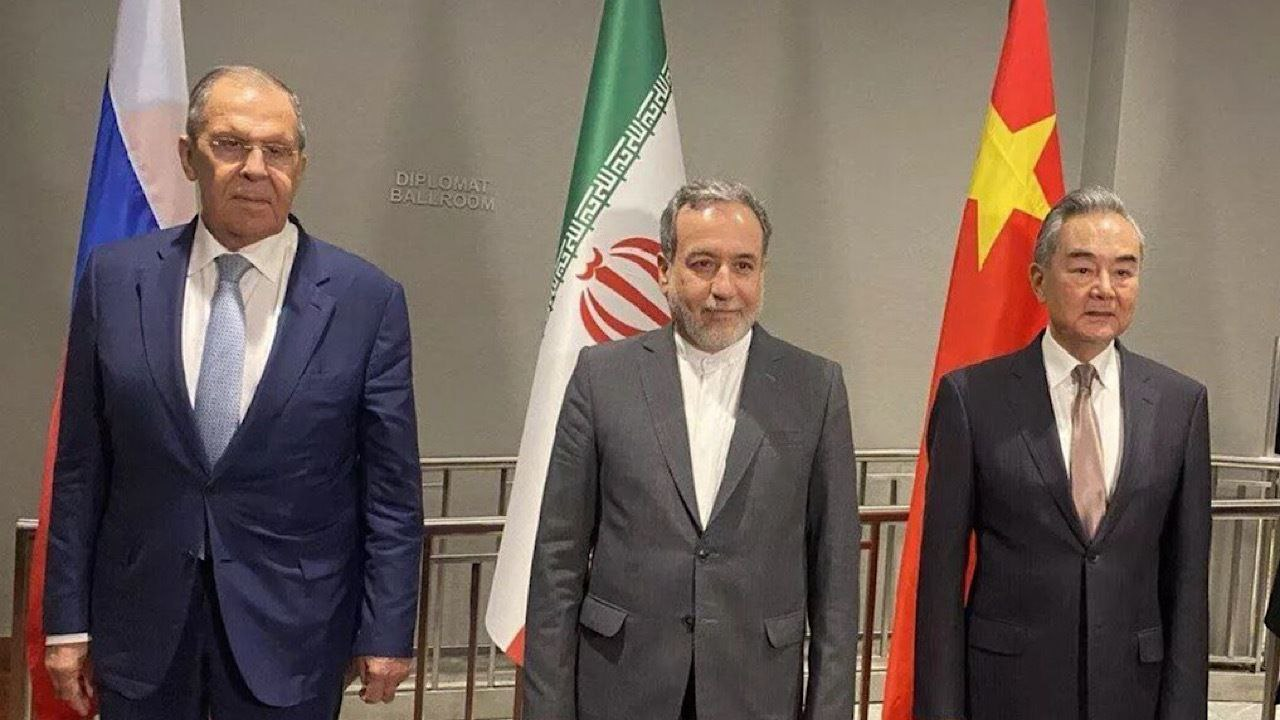Joint letter by the foreign ministers of Iran China and Russia rejecting the alleged activation of the snapback mechanism by three European countries
The Foreign Ministers of Iran China and Russia in a joint letter addressed to the secretary general of the UN and president of the Security Council rejected the attempt by the European troika to revive the annulled Security Council resolutions against Iran.

The Foreign Ministers of Iran, China, and Russia, in a joint letter addressed to the secretary general of the UN and president of the Security Council, rejected the attempt by the European troika to revive the annulled Security Council resolutions against Iran. They stressed that the notification submitted by the three European countries to the Security Council is contrary to the procedures set out in the JCPOA and Resolution 2231, lacks any legal basis, and must therefore be considered null and void.
In part of the joint letter, the foreign ministers said, “The action by the foreign ministers of the three European countries (E3) is clearly inconsistent with the above resolution and is therefore inherently flawed both legally and procedurally. The path pursued by the E3 misuses the authority and functions of the UN Security Council, while simultaneously misleading its members and the international community regarding the root causes of the disruption in the implementation of the JCPOA and Resolution 2231.”
The letter refers to the current state of the JCPOA as a result of the unilateral withdrawal of the US and the failure of the European countries to remedy the negative consequences of Washington's pullout, underlining that as long as the effects of the US withdrawal are not duly addressed, there can be no possibility of invoking the dispute resolution mechanism against Iran. The foreign ministers further pointed to well-established principles of international law and underscored that the three European countries, having themselves committed material breaches, cannot claim entitlement to the rights and mechanisms stipulated in the JCPOA and Resolution 2231.
The foreign ministers of Iran, China, and Russia stressed that unlike the actions of the European parties, “Iran’s reciprocal measures, including the suspension of its JCPOA commitments, were taken specifically in response to the US withdrawal and its total violation of its obligations under the JCPOA, and only after a sustained period of Iran’s continued compliance and the failure of the E3/EU in remedying the situation. The reciprocal steps taken by Iran cannot serve as a basis for activating the ‘snapback’ mechanism. It is unacceptable that this mechanism be abused to reward the US withdrawal and the subsequent non-compliance of the E3/EU with their commitments, including those outlined in the statement issued following the Joint Commission meeting of 25 May 2018.”
The letter stressed that the JCPOA is an inseparable part of Resolution 2231, and the three European countries cannot approach the Security Council without completing the JCPOA dispute resolution process. It added that the E3 have failed to complete this process and that “since the requirements under paragraphs 36 and 37 have not been fulfilled, the correspondence by the foreign ministers of France, Germany, and the UK cannot be regarded as a notification submitted by a JCPOA participant under paragraph 11 of Security Council Resolution 2231”.
The joint letter of Iran, Russia and China noted that according to the IAEA Iran followed through on its commitments after the JCPOA went into force in 2015. It underlined that"the re-imposition of annulled Security Council sanctions is illogical and unreasonable. Such a move would only reward the E3 for their significant non-compliance, negate years of diplomatic efforts, undermine the credibility of multilateral agreements, and set a precedent for the selective application of international obligations. Therefore, the preservation of Security Council Resolution 2231, including its timelines, is of vital importance.”23:18
The letter stressed that, in light of these reasons, “the Security Council cannot act on the basis of the letter submitted by the E3 and must consider it null and void. Any step or measure taken in disregard, or in violation, of Resolution 2231 cannot create binding international legal obligations for UN Member States.”
Iran, China and Russia called on Security Council members to reject the notification submitted by the E3 and to reaffirm their commitment to the principles of international law and multilateral diplomacy. The letter also advised the E3 to withdraw from their current destructive path and to refrain from actions that weaken the unity and effectiveness of the Security Council.
Finally, the letter recommended that all parties pursue the path of dialogue and diplomacy, underlining the need to avoid intimidation, sanctions, and threats of the use of force.
Iran, China, and Russia requested the UN secretary general to circulate the letter as an official document of the UN among member states.